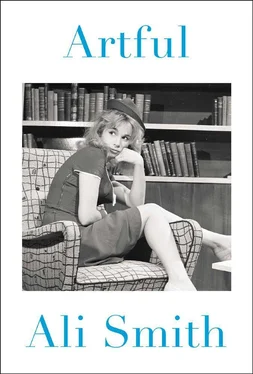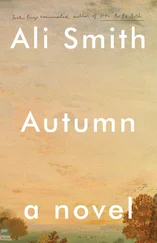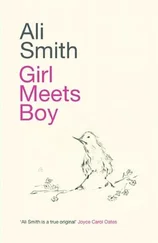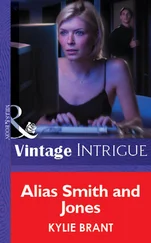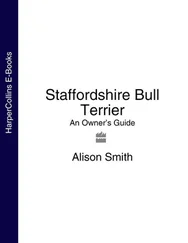I had started the walk with sixty pounds in my wallet. I went to the booth now with my last five-pound note.
The Super Steer-a-Ball is impossible, I said to the man in the booth.
Oh no it’s not, he said.
Oh yes it is, I said. It can’t be done.
Oh yes it can, he said.
He took an old penny for himself off one of the stacks of coins and opened the door to the booth, came out, stood in front of the machine, put his penny in and angled the steering wheel acutely as the ball came down through the pretty trees and went straight down the hole marked LOST.
Aw, the man said. I can usually. Wait a minute.
I gave him one of my pennies. He put it in, the ball came down the English lanes and went straight down the hole marked LOST.
I’d have liked another couple of tries myself, but I couldn’t get him off the game. So I served the small queue of people for him who were waiting for change. When I left the arcade he was still bracing his own weight against the weight of the machine.
Aw! he was saying. Then: Wait. Then: Aw no.
I came back to our hotel, which was quite a posh one. I moved through Reception as quickly as I could because some people there were making a complaint to the management about drains. I came upstairs, along the corridor and into our room. You were still sitting exactly where you’d been, as if I’d never left. You were reading the other book you’d stolen from the charity shop, a book about the ways insects, birds, and bigger creatures made homes for themselves out of whatever they had to hand. Compare this , I read over your shoulder, with the saliva nest constructed by Asian cave swiftlets. Made of solidified spit, the secretion’s function is to form a bracket nest for attachment to a cave wall. Other species, like the glossy swiftlet, differ in that they use their saliva to stick plant materials together .
There was a photograph of a crusted, waxy-looking bird hammock, a paragraph about bird’s nest soup and a further description of an Australian caterpillar that used its own feces to make a little hut.
I went and lay on the bed and I tried my hardest, I imagined you putting the book down and coming and lying beside me there on the bed.
It worked. You put the book down. You came over. You lay down, almost obediently.
I looked into your black eyes.
Home. Lost.
Tell me some more, I said, about the place you go, the place you are when you’re not with me. The place with the woman with the bright hair in it.
Oh, you said. Okay. Well. There’s three dark walls and one wall covered with light. On this wall there’s a woman, a girl, with bright hair. And sometimes she’s all colorful and sometimes there’s no color but her hair is bright every time. And she lives in a village on an island, and there’s an old sea captain in the same village, only he’s gone mad now that he’s been on land for so long, and she goes to the docks with him and they stand and look out over the sea and imagine all the places they could go, they shout the names of all the places at the sea and the sky.
Yes, I said.
I closed my eyes and listened.
And then she’s very poor, living in a poor part of the city, and she can’t keep a job because every place she takes one the boss makes a pass at her because she’s so pretty, so she decides she’ll emigrate, and a kind neighbor tells her about his friend, a man who sends ships all over the world, he says this man will help her, and she goes to see him, the man, and he takes a liking to her, and after she’s left his office he finds she’s dropped her purse. He looks inside it and there’s almost nothing, a few small notes, a few coins. In a little while he’s going to take a large note out of his own wallet and fold it into the purse and give the purse back to her without her knowing he’s done this. Meanwhile she’s on a bus and has just looked in her bag and can’t find her purse, and the conductor is standing over her about to ask for the money for her ticket.
Then what? I said.
Then it’s in color and she’s stowed away on a boat to be near her true love, who’s a sailor, a cadet, and she’s hiding in a lifeboat under the canvas covers waiting for the chance to come out and some sailors come and stand round the lifeboat, they’re all eating bread and cheese. And one of them asks another one to play a tune on his harmonica, so he puts his bread and cheese on the cover of the lifeboat and plays a tune, and while they’re all listening to him, inside under the lifeboat cover she sees the shadow of the food and licks her lips and her hand sneaks out and takes the cheese and the bread. The man finishes playing the tune and he looks for his bread and cheese, it’s gone, and he thinks it was a trick by the other sailors, getting him to play a tune so they could take his sandwich, and a squabble breaks out, but inside the boat the girl eats the bread and the cheese with a look of total happiness on her face.
Through all these weeks you’d been back, whenever I’d asked you about the other place you’d been, you’d told me little pieces of story like these, always about this hungry, bright-headed girl. Then you’d say words I’d never heard of, words that didn’t really sound like they were words. It was good, that things didn’t have to mean. It was a relief. It was strangely intimate, too, you speaking to me and me having no idea what you were saying.
Guide a ruckus, you said now. Trav a brose. Spoo yattacky. Clot so. Scoofy.
Tell me what else happens, I said. Say more things like that.
*
To stay anxiety I engrave this gold,
Shaping an amulet whose edges hold
A little space of order: where I find,
Suffused with light, a dwelling for the mind.
(CLIVE WILMER, The Goldsmith)
1: Putting the For in Form
In the beginning was the word, and the word was what made the difference between form and formlessness, which isn’t to suggest that the relationship between form and formlessness isn’t a kind of dialogue too, or that formlessness had no words, just to suggest that this particular word for some reason made a difference between them — one that started things.
‘God, or some such artist as resourceful, / Began to sort it out. / Land here, sky there, / And sea there’ is how Ovid, metamorphosing into Ted Hughes, saw the start of all things. Before that? ‘Everything fluid or vapor, form formless. / Each thing hostile / To every other thing.’ Not that fluid or vapor isn’t form too; it’s the hostility that Hughes highlights: ‘at every point / Hot fought cold, moist dry, soft hard, and the weightless / Resisted weight.’ Until, that is, God, or some such artist, starts throwing weight around. Form, from the Latin forma , meaning shape. Shape, a mold; something that holds or shapes; a species or kind; a pattern or type; a way of being; order, regularity, system. It once meant beauty but now that particular meaning’s obsolete. It means style and arrangement, structural unity in music, literature, painting, etc.; ceremony; behavior; condition of fitness or efficiency. It means the inherent nature of an object, that in which the essence of a thing consists. It means a long seat, or a bench, or a school class, and also the shape a hare makes in the grass with its body for a bed. It’s versatile. It holds us, it molds us, it identifies us, it shows us how to be, it gives us a blueprint in life and art, it’s about essentiality, and several of us can sit on it at once. It can mean a criminal record and it can mean correctness of procedure, both at once. Form can be right and it can be wrong. This is Graham Greene on Shakespeare’s felicity of form even in the slightest of phrases, in a throwaway moment from Troilus and Cressida: ‘“Think, we had mothers,” Troilus’s bitter outburst is not poetry in any usually accepted meaning of the word — it is simply the right phrase at the right moment, a mathematical accuracy…in a balance sensitive to the fraction of a milligram.’
Читать дальше
